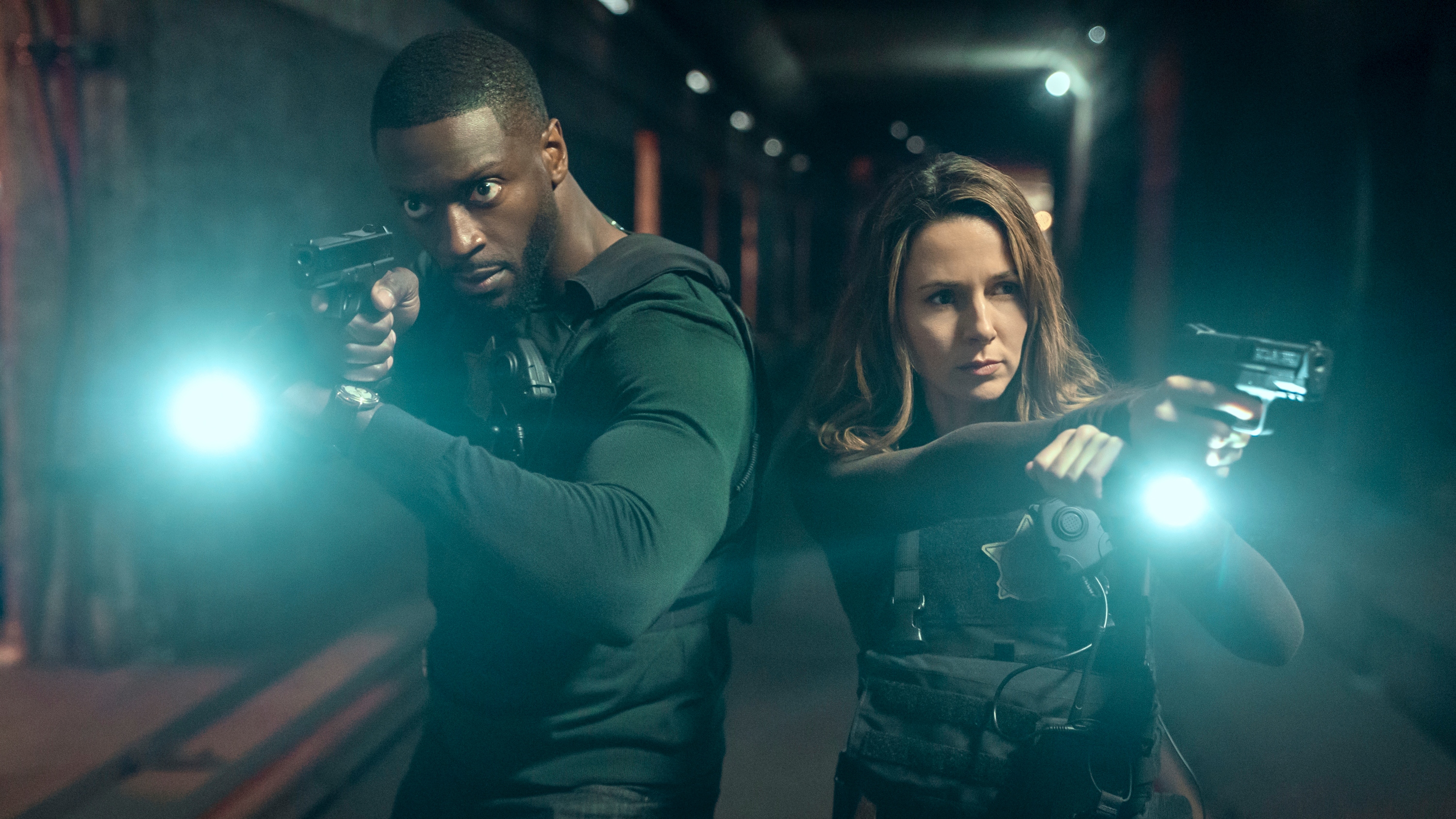The Grand Tour: Sand Job — release date, trailer, destinations, interviews and everything we know
The Grand Tour: Sand Job on Prime Video sees Jeremy Clarkson, Richard Hammond and James May head to the Sahara to recreate the legendary Paris-Dakar rally.
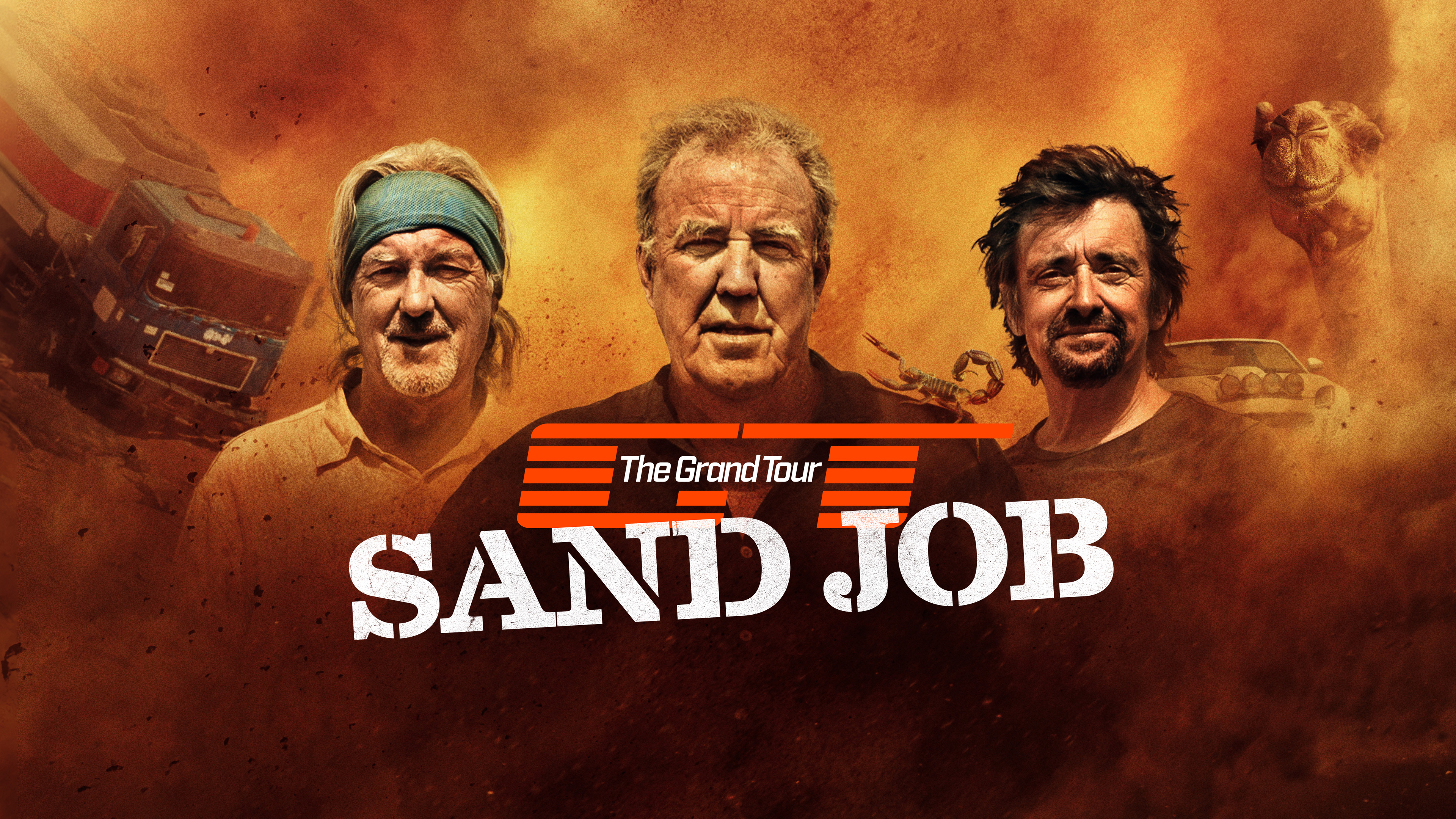
The latest updates, reviews and unmissable series to watch and more!
You are now subscribed
Your newsletter sign-up was successful
Want to add more newsletters?

ONCE A WEEK
What to Watch
Get all the latest TV news and movie reviews, streaming recommendations and exclusive interviews sent directly to your inbox each week in a newsletter put together by our experts just for you.

ONCE A WEEK
What to Watch Soapbox
Sign up to our new soap newsletter to get all the latest news, spoilers and gossip from the biggest US soaps sent straight to your inbox… so you never miss a moment of the drama!
The Grand Tour: Sand Job is Jeremy Clarkson, Richard Hammond and James May’s penultimate Grand Tour adventure on Prime Video. In this feature-length special the trio drive 1,000 miles across the Sahara Desert in north west Africa.
They will attempt to recreate the last leg of the iconic Paris-Dakar rally, starting in the little-known former French colony of Mauritania in west Africa and ending in Dakar, on the coast of Senegal. It was known as the most dangerous rally in the world and, to make the challenge even harder, the trio will make the arduous trip in second-hand sports cars they have modified themselves. They face impenetrable mountain terrain, 48C heat, landmines and temperamental cars that look unlikely to make it to the finish line, but they make sure there’s plenty of fun to be had along the way.
“I think we all wondered if it was going to be a little bit too difficult for the cars that we’d chosen,” admits James May. “The Paris-Dakar race was a very gruelling thing. I've never been quite sure why people did it because it must have been really tough and quite risky. The people who did it have a sort of mad hero status.”
Here’s everything you need to know about the former Top Gear team's own version of the rally in Prime Video documentary The Grand Tour: Sand Job…
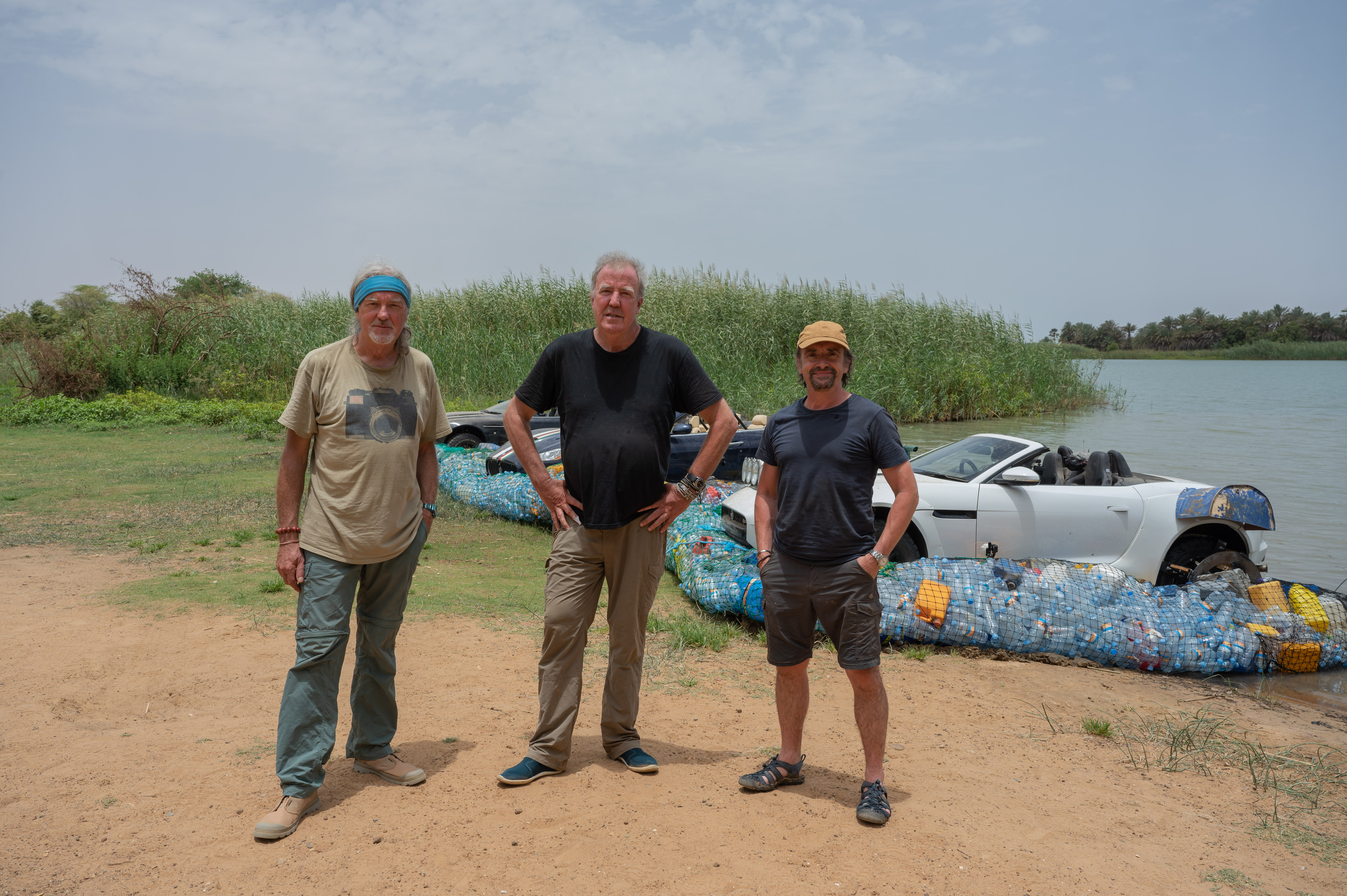
The Grand Tour: Sand Job release date
The Grand Tour: Sand Job is a feature-length special that launched globally on Prime Video on Friday, February 16, 2024.
Is there a trailer for The Grand Tour: Sand Job?
Yes there's a trailer for The Grand Tour: Sand Job which shows the boys doing what they love best... playing about in cars, in a remote part of the world! Take a look below...
What happens in The Grand Tour: Sand Job
in The Grand Tour: Sand Job, Jeremy Clarkson, James May and Richard Hammond are taking second-hand sports cars they have modified themselves on a grueling drive from Mauritania in western Africa to Dakar, Senegal to recreate the final 1,000 miles of the legendary Paris-Dakar rally. They will be driving through a Foreign Office classified danger "red-zone" and facing everything from vertical drops and unreachable borders to landmines and the threat of hideous diseases. They plan to do some camping along the way and try to cram in as much motoring fun as possible.
The latest updates, reviews and unmissable series to watch and more!
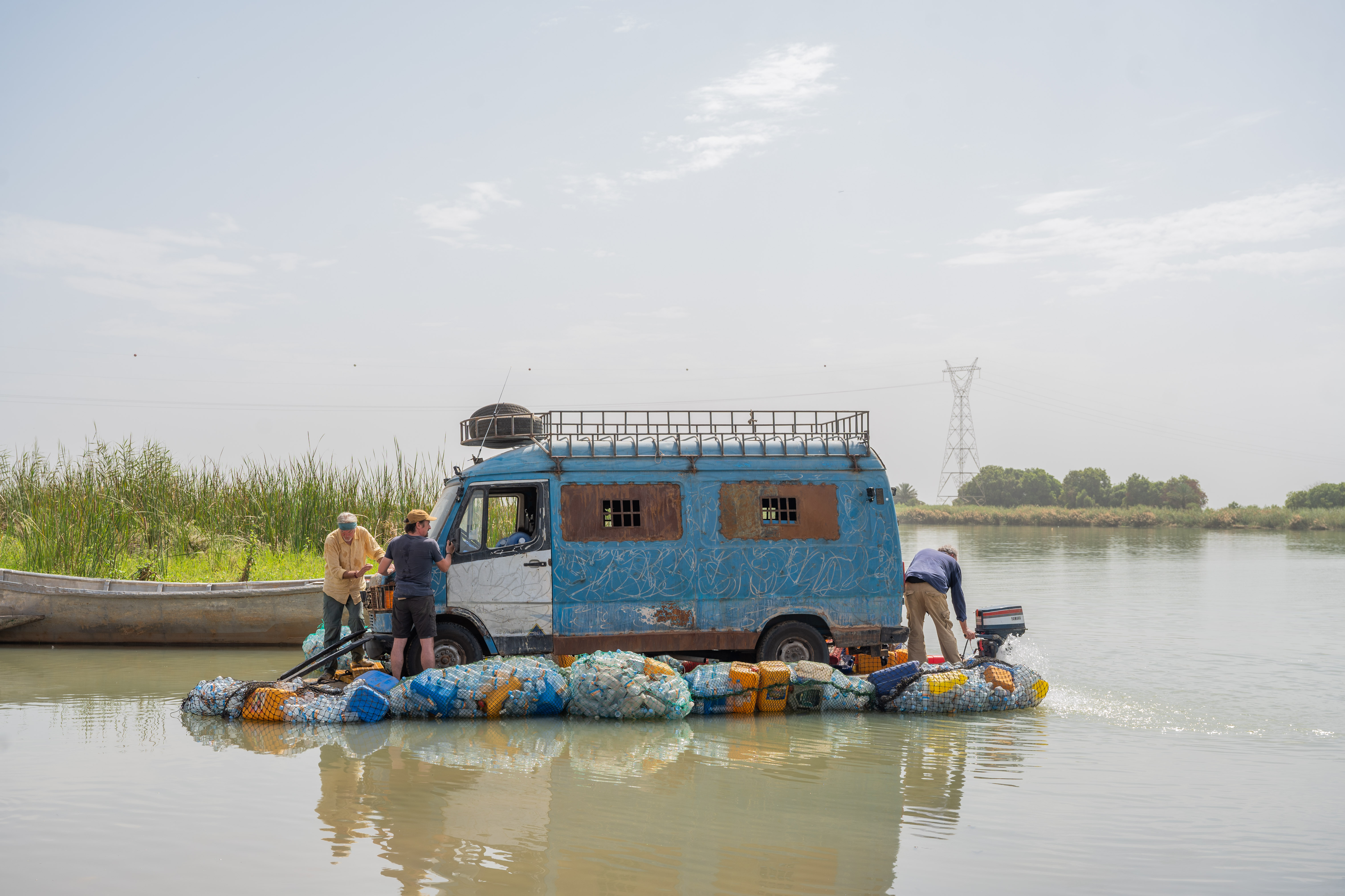
Interview with Richard Hammond on The Grand Tour: Sand Job
Richard Hammond also presents shows such as Richard Hammond’s Workshop, Richard Hammond’s Crazy Contraptions and The Great Escapists. He presented Total Wipeout and Blast Lab and voiced Nigel in the cartoon Phineas and Ferb.
You like camping, so filming The Grand Tour: Sand Job must have been heaven for you?
Richard Hammond says: "I’m such a boy scout. I'm never happier than when I'm packing my bag and I'm wrapping up my best pen knife and a collapsible stove and a little bag to put things in to keep them dry. I like a sleeping bag and a torch. I love all things to do with camping. Obviously, there are a lot of us to be catered for and we can’t just be let loose into the wild. It’s organised. But there were evenings when it was quieter and things were smaller, and I was in my funny little tent on my car on my own and I'm very, very happy doing that."
Did you also look forward to the challenge of driving across the desert?
Richard says: "I mean, I love an Aston Martin, I love long travel suspension, and I love the way a car can adapt to and absorb terrain. Honestly, I can be moved close to tears if I get into a proper Dakar racer. To feel the way the car is, in almost an animal way, adjusting to the terrain underneath: I find that really powerful and really profound. I love the freedom that it gives you. To look across the landscape and say: I want to go over there really bloody quickly, and I’m going to, thanks to this machine. So yes, I was very excited by this project."
Your car was rather challenging on this journey, wasn’t it?
Richard says: "There was the odd issue. It turns out an elderly V12 engine isn’t the best place to start when you want a rugged machine for crossing deserts. A Toyota Landcruiser is where people ordinarily go, not a hand-built, British-engineered luxury GT. I did ask quite a lot of my car. The problem with my car, as you see in the special, is that it came from an era just as the whole idea of computers running the show was taking hold. So, cars were becoming clever but mine hadn't become quite clever enough. It would have been better to have had something earlier or later. Mine was exactly the wrong period when it thought it was clever, but it wasn’t."
What was the issue?
Richard says: "So, the car had a brain, it had sensors all over, and those sensors would occasionally feedback to the brain to say, 'Oh no, there's a problem'. This might be with the exhaust, brakes, the steering, suspension, all manner of things. And the sensors all report back into the brain along these wires. Occasionally, there might be a legitimate problem and the sensors would tell the brain and say, 'You solve the problem', and then the brain would say, 'Okay, we're all fixed we can all go on together'. But my God, occasionally it was the sensors that were the problem. So, the car would be working fine but the sensor would be screaming 'My gearbox is broken!”'and the brain thinks it’s broken so it only gives me one gear to work with, but the gearbox is actually fine. So, it was a massive miscommunication: one big argument going on in the car between all the different parts. As far as the brain was concerned, everything that could go wrong with the car had gone wrong, even though it hadn’t."
What did you do to fix it?
Richard says: "Well I tried screaming at it and saying, 'There’s no problem, shut up', but unfortunately that didn’t work. So ultimately, after driving in one gear, I had to wait until we had Wi-Fi, get a laptop out, and then interrogate the brain. I had to essentially use the computer to say to the car, 'It’s okay. Calm down.' It became neurotic. I think it had too much sun. You set off and think everything’s fine and then the next thing you know it's in a panic about its gearbox again."
You had a problem with overheating too...
Richard says: "Yes. I had fitted underbody protection which was a good idea because we were going through rough terrain and the delicate parts of the car would need protecting from rocks and everything else. What I hadn’t foreseen is that this massive V12 engine, which is normally open underneath, was now covered by a big bash plate which kept hot air in. I was cooking my own engine, basically. It was a constant battle between leaving it open to damage or closing it in and making it overheat."
Did you quite enjoy the challenge, though?
Richard says: "Yeah, look, I’m a guy with some degree of mechanical sympathy, I run a garage and I’m interested in the way cars work. I’m scared of the computer side of things though. It’s like plastering: it’s a dark art. But to plug it into the diagnostics and fix it was quite satisfying. I love problem solving in a physical way. We love taking cars on journeys they weren’t built to do because that’s when they really develop personalities and, boy, did mine ever do that."
Did you mind being left behind by the others when your gears weren’t working?
Richard says: "Well, it wasn’t as bad as Madagascar. There’s always going to be one of us. You can’t possibly know which one it’s going to be, but that’s okay. If you’re doing anything with mates and you’re the one having the more 'exciting' time, shall we say, that’s alright."
Tell us about the visit to the Ambassador’s house...
Richard says: "It was fabulous! I want to go back. It’s one of my favourite places I’ve ever been. The Ambassador’s friends thought he was going to Mauritius when he got the job because they’d never heard of Mauritania – I mean, who has? But it was the most wonderful, characterful place full of lovely people. The Ambassador turned to me at one stage and said, 'In a minute, one of the chaps serving us is going to call me Excellency and if you laugh, I shall kick you.' I did laugh, of course I did."
You couldn’t drink alcohol in Mauritania. What was your first beer like when you got over the border?
Richard says: "Well, I think it’s quite known that we like a beer. So, I’d say immense relief. It was almost needed on a cellular level. I was worried that my cells would forget how to connect if I didn't get a beer. I worried that because having a beer was all I could think of my atoms would forget to be bonded together in the right order and I might just turn into a cloud and vanish."
The film ends with you on the beach where the Paris-Dakar race finishes. What was that like?
Richard says: "That was in Senegal but most of the film was spent in Mauritania — It’s a spectacular place. It’s four times the size of the UK but with hardly any people. It’s so big, so empty, and breath-taking. We never go anywhere that's not nice to look at, but this really was a bit special."
What did the history of the Paris-Dakar race mean to you in that moment?
Richard says: "A hell of a lot. I mean, it was legendary. If you’re into cars, you're going to be aware of the Paris-Dakar in its heyday, because the machinery, scenery, and what they did was incredible. So yeah, it meant a lot to drive in that same space. It was really exhilarating."
Is this a special that will appeal to the proper petrol heads amongst your fans?
Richard says: "I think this special treads that path that we've travelled very carefully which is that you don't have to be a car nerd to watch the show because we do that for you. That's been our motto, spoken and unspoken, for all of the years we’ve done it because it's in our blood, it’s in our hearts and you can see it. I think it does look beautiful. We’ve gone somewhere that people don't get to go to, and it’s fabulous to put that on screen for people. Cajoling an Aston Martin across a massive desert is a unique experience, so from my point of view this was a huge reminder of how lucky we are to get to go and have an adventure like that. I hope people enjoy it. I think it's a fine example of the nonsense that we enjoy getting up to."
Can you tease anything about the next special?
Richard says: "There are some familiar places, and it was a joy to be in Zimbabwe after so many years. We always have a great time in Africa. Zimbabwe was just unbelievable."
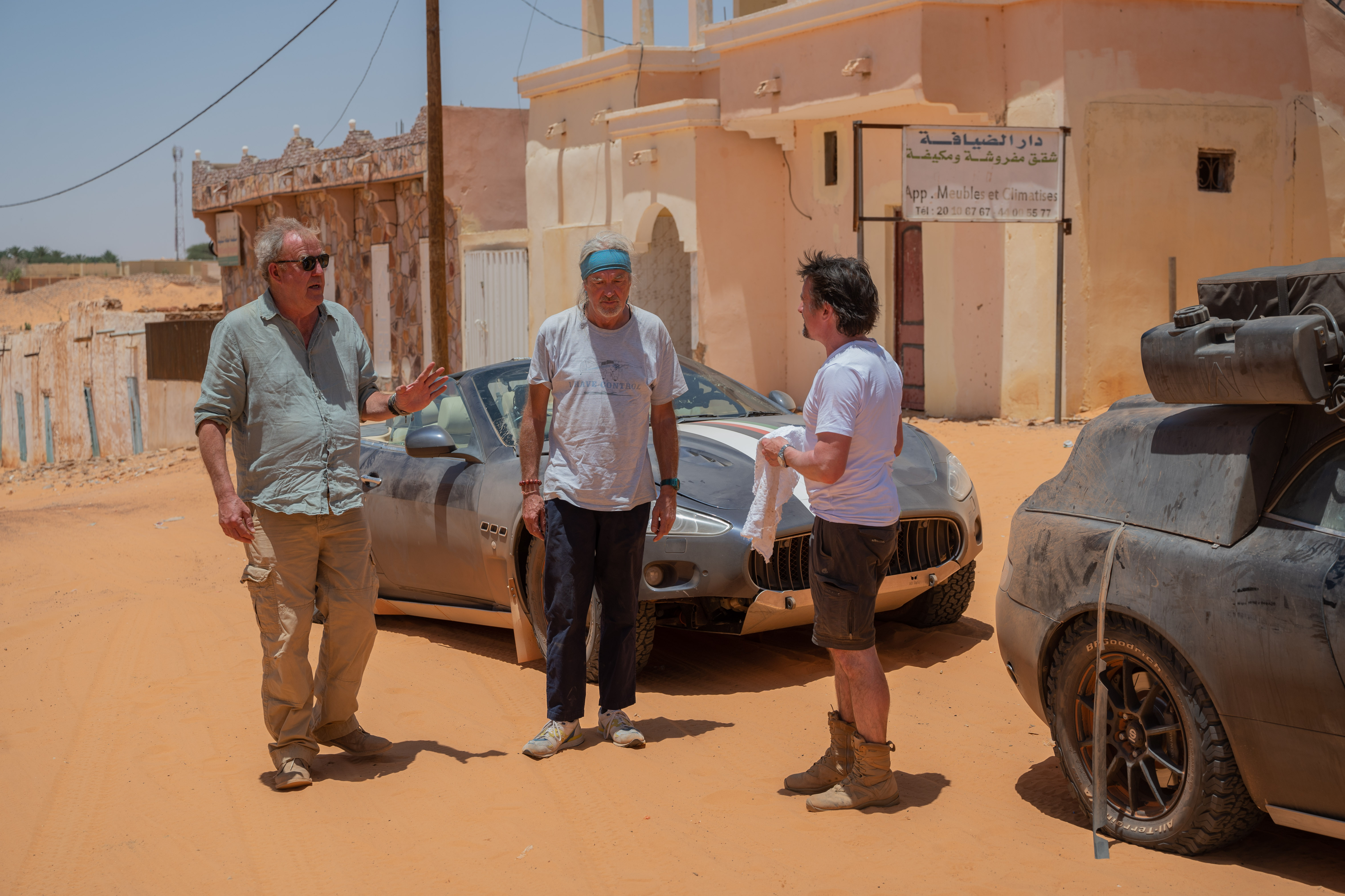
Interview with James May on The Grand Tour: Sand Job
As well as Top Gear and The Grand Tour, James May is known for his travelogue James May: Our Man In… He’s also presented James May: Oh Cook!, James May: The Reassembler, James May’s Man Lab and Oz, and James’ Big Wine Adventure, with Oz Clarke..
Tell us about the car you chose for The Grand Tour: Sand Job…
James May says: "Well, I have much better taste and judgement than the other two so my car, the Maserati, was definitely the best looking. And it worked pretty well for the whole route, actually, proving that you don't need to spend £200,000 on a rally car. I think my budget was about £30,000."
Was it quite nice not being the one that was left behind, for a change?
James says: "I think it was long overdue, because I've been left behind in quite a few other things due to poor choices. Especially Eurocrash, that car was just so dreadful. So yes, it was quite gratifying and also slightly surprising because, of all those cars, you’d expect the Maserati to be the unreliable one; they do have a bit of a reputation for fragility. I mean, Aston Martins aren’t brilliant in that respect, but Hammond’s was just a disaster from the start. I knew it. I have a sixth sense about these things. When we buy those cars, I can stand near them, and I know if they're trouble."
What mistake do you think Hammond made in choosing his car?
James says: "I think it's just frank stupidity. There are sophisticated electronics in all modern cars which can go wrong, and small faults can be quite difficult to fix if you haven't got the right diagnostic equipment, which generally you don't have in the middle of a desert. So, the generous reply would be that it was just bad luck, but I prefer the response that it was due to uselessness."
Is this a special for petrol heads?
James says: "It’s certainly a bit more car-y than some other ones. We sort of alternate between car-y ones and more travel/sitcom ones. Eurocrash was not very car-y, but the French one was about car history, for example, and I’d say on that scale, this one leans towards being quite car-y. All three cars that we drove are interesting. They're all desirable cars, at least in their original form, and the idea of modelling a car and racing them across a desert is quite appealing to a lot of people."
You seemed to enjoy getting the cars off the train at the start of the journey…
James says: "Yes, there were several things that I thought were exciting. One was that I was allowed to drive the shunter to manoeuvre the trucks, which I've always wanted to do, and that was great. Then we got my car off with planks, and I drove it very precariously and heroically, which is why they cut that bit out. Then we had to get the other two cars off with the telehandler which Jeremy is now an expert at because of his farming. He will always tell you he’s useless at anything practical, but he did that very well. It was great fun. I’m openly into that engineering nerdy stuff and I don't mind admitting it. Hammond is too: obviously he now runs a car repair centre and he’s done other shows in the past that have an engineering element. So, we do like it."
Did you enjoy being in the desert?
James says: "We actually all quite like being in a desert. We like the dust and the sand and the heat. It's exhausting, but it's all the things that T.E. Lawrence talked about, he said “the desert cleans you and it’s pure”, and I think that’s true. We all slightly get off on that and we feel like we're being really heroic and manly."
You did go for quite a T.E. Lawrence look with your headscarves…
James says: "Yeah, that was partly because it is incredibly hot. It's even hotter than I've experienced in India, and I thought that was the hottest I was ever going to be, so you actually do need to protect yourself. In that portion of the day, between one and four o'clock in the afternoon where supposedly only Mad Dogs and Englishmen go out, the locals generally hide inside. So, if you are outside, you have to cover up, or you'd be burned to a crisp, and you’d get sunstroke and go mad."
Did you get dehydrated?
James says: "We did go a few days without a proper wee, and I'm someone who likes to urinate freely. I mean, not in my trousers, but I don't like to hold it in. When we did wee it sort of came out as dust.
How did you feel about camping?
James says: "It’s awful. I mean, you don't really have much choice because it's a pretty empty country. All the bits we were in had no hotels or anything. Since the sixties I think there have only been fifty filming permits or so. So, we had to camp."
How did you cope with the heat and the dust?
James says: "I find it quite exciting when it gets very hot and very dusty. I've always been neurotic about dust in the home and actually I don't like dust in my own car, but somehow when you do those desert drives, it's nice that everything gets covered in dust and you get covered in dust and it sort of dries your hands and sticks in your hair."
Did you enjoy going to the British Ambassador’s house?
James says: "It was fantastic. He even had Ferrero Rocher: I didn’t actually think they were real. I thought there was one pyramid in existence, and they got moved around the world for photoshoots and filming, but he really did have them. Which is weird because they're not a British thing, are they? Aren’t they from Austria or Switzerland or something? I suppose an Ambassador is just expected to have them. But yes, it was wonderful and surreal. He’s got this rather lovely house with a nice garden."
What was your first beer like when you got over the border?
James says: "It was nice. Jeremy was pontificating about how you're supposed to admire the condensation and savour the moment which I think is just because he was trying to do a covert advert for his own beer. Whereas I just think oh, it's a beer and I've been waiting for it for several weeks, so I’ll drink it and look at the lovely view instead of the beer."
What was it like finishing the journey on the same beach as the Paris-Dakar race?
James says: "Driving on sand features in some of the greatest things we've done over the years. Back when we did the Namibia special in the beach buggies, I had a fantastic sunset drive across the dunes on my own because I'd been left behind as usual while I stopped to do something to my car, and that was fabulous as well. It’s the same reason anybody likes going to the beach: I suppose there's something quite primeval about it. You're at the edge of the land. It's unspoiled and there's nothing there apart from a few elements: water, sky and sand. It just appeals to something in humans and so yes, it was terrific."
What did the history of the Paris-Dakar race mean to you in that moment?
James says: "That was a massive thing when I first started working on car magazines back in the early nineties. It used to get a lot of coverage as it's a very gruelling thing."
How would you summarise Sand Job?
James says: "We tend to be a bit optimistic and we tend to push complications to one side and hope that somebody will deal with them. So, I was quite pleased that it ended up being a good adventure. It's a very long special because there's a lot of material. We always tell ourselves we don't actually need to do 1200 miles or whatever, because we have enough adventure in 200 miles to make a special. But we still go back and do 1200 miles, because either we like it or we're a bit stupid."
Interview with Jeremy Clarkson on The Grand Tour: Sand Job
Jeremy Clarkson is best known for Top Gear, in which he starred alongside Richard Hammond and James May from 2002 to 2015. He also presented shows like Jeremy Clarkson’s Extreme Machines, Motorworld and Clarkson: Unleashed on Cars. More recently Jeremy has fronted Clarkson’s Farm, Who Wants to be a Millionaire and It’s Clarkson on TV.
How did you feel about doing this show in Mauritania?
Jeremy Clarkson says: "I love deserts so I've always wanted to do the Sahara, but it’s difficult to go there; you can't go to Mali or Libya or Algeria or Chad. You can't go to the top of Nigeria. And then it was really a question of finding the most inappropriate cars for trans-Sahara travel, and I think we did a pretty good job on that."
Tell us about your car...
Jeremy says: "The Jaguar F-Type V6 Supercharged VS. Well put it like this: it was so impressive, I came home and bought one immediately. And I don’t think Hammond bought an Aston Martin afterwards. The other two made unwise choices, as usual. The Jaguar was so tough and so unbreakable. I discovered something interesting: Jaguar has a reputation for making flimsy cars, cars that fall to pieces, it has this reputation for unreliability, so I couldn't understand why my car was so capable. I did some checking, and it turns out that at the time this car was made, Jaguar Land Rover – which is one company – had one test that a car had to pass before it could go on sale which is all to do with mounting curbs at high speed and running over potholes and biffing into things. And the test was designed for the Range Rover, but the Jaguar had to pass the same test. So, they are extraordinarily strong. I cannot lavish enough praise on that car. I brought back the one I drove in Mauritania too, I have it at the farm.
You mentioned the other two making unwise choices. Can you expand on that?
Jeremy says: "Well, Hammond in particular had constant issues. It started off being funny and then it became annoying because it was relentlessly unreliable. His was as unreliable as mine was reliable."
This film put you to the test in all sorts of ways. You had to get your cars off a train, and then drive them across a body of water…
Jeremy says: "Yes, and we attached snowmobiles to the front of the Jag to try and even out the road surface. It’s potty engineering, an idiotic idea but it worked. The funny thing with the cars on the train is that we thought it would be a bit like what happened in Bolivia when they arrived on a barge, and it took us ten days to get them off. We thought we'd have the same problems in Mauritania, but we found an old telehandler loader like the ones we use on farms and, now that I'm a farmer, I was able to get them off quite easily. For once I did something properly."
What was the heat like?
Jeremy says: "You know, the funny thing is you don't get filthy in a desert. It's a very strange thing but sand is incredibly clean. We’ve experienced this in the Atacama and the Gobi and the Nomad and all the places we've driven over the years. You don't get dirty. But it was bloody tough. We drank litres and litres of water, and we didn’t pee. I mean, I don't know where it was going. Hammond said after three or four days, “I’m going to have a pee” and I suddenly thought, “I haven't had a pee this whole time.” When people go to see the Northern Lights, for example, they boast that it was minus 30 and you think "No, it wasn’t, it was minus six” or they say it was 50 degrees somewhere hot and you go, “No, it was maybe 38 in the midday sun.” Well, this really was 50 degrees in the shade. You never see the locals during the day, ever. We hardly saw anybody at all but if we did occasionally encounter a small village, it would have maybe six or seven huts and everyone would be inside them all day. They venture out only after the sun has set because it's so hot. Camping is always ghastly but when you're in the middle of the Sahara Desert, you have no alternative. There are no hotels, there are no guest houses or even restaurants or shops. It's very much the opposite of, say, Luxembourg."
You did see civilisation when you went to the Ambassador’s house. Did he really have a tray of Ferrero Rocher?
Jeremy says: "I don’t think they were put there for us. I certainly didn’t see anybody putting those Ferrero Rocher chocolates there. We were sitting on the sofa when he went off to make us a cup of tea and I went to take a look and somehow, I managed to break his decoration. That was really funny. That's probably my favourite scene in the entire show actually. I don’t know if you’ve ever been in a British Embassy anywhere, but they are amazing. I remember in the middle of the Iraq war in 2002 I went out to Baghdad to cover it for the Sunday Times. They pick you up from the airport in an armoured Land Rover with helicopter cover and so on, then we got to the British Embassy, and they had people in the gardens doing topiary. I mean, it was beautifully manicured lawns, fountains, Country Life magazines spread out on all the tables. It was astonishing. And it was the same in Mauritania: you drive through the desert where people are selling sand to one another and suddenly there is this swimming pool, manicured lawns, elegant surroundings, beautiful furniture. It’s fantastic. If ever you're absolutely desperate, in any country, head straight to the British Embassy."
They didn’t give you a beer, though. How was your first beer when you finally got over the border?
Jeremy says: "Well, it wasn’t a Hawkstone [Jeremy’s own beer] so it was disgusting. I mean, as an alternative beer goes, it was very welcome. But I like to savour a beer before I drink it. Those two just plunged in, but I like to look at it and then see what the anticipation of a cold beer feels like after however many days in a dry country."
What was it like to drive on the famous beach from the Paris-Dakar race?
Jeremy says: "I love travelling on beaches. I've done it in New Zealand and Wales and now Western Africa. It's just a wonderful thing to do. It would have been fun anyway but the most important thing about that drive was that we were re-enacting what they used to do at the end of the Paris-Dakar rally, and we always used to see these amazing pieces of film of the camera helicopters chasing the cars down the beach as they came into Dakar for the finish of this epic rally from Paris. It was beautiful, it was a lovely day and I had Seven Seconds on the stereo as well which is that Senegalese song, which was nice."
You seemed to enjoy each other’s company very much, as usual.
Jeremy says: "It was honestly hilarious. Hammond’s Aston endlessly breaking down was very funny. Listen, when we do these things, it is a laugh from start to finish. We know what we're doing and we do enjoy one another's company. Otherwise, we wouldn't have been doing it for twenty-five years. It was tremendous. It was a big laugh. The fact it’s the longest special we've ever made testifies to how good it is because there’s very little you’d want to throw away. It’s all exciting, good stuff."
Can you tease us about the final one?
Jeremy says: "It’s my favourite one we’ve ever done. I've always thought we'd never go anywhere better than Botswana, and now we have."
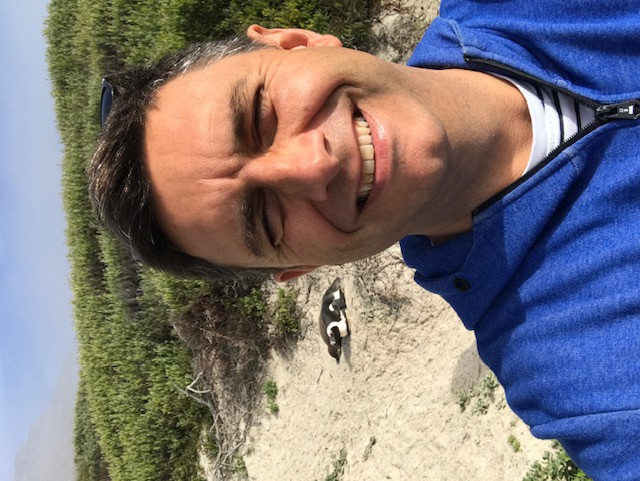
I'm a huge fan of TV so I've found the perfect job, writing about telly shows and interviewing major television, film and sports stars for over 30 years. I'm currently the TV Content Director on What's On TV, TV Times, TV and Satellite Week magazines plus contribute to Whattowatch.com. I previously worked on Woman and Woman's Own in the 1990s. Outside of work I swim every morning, support Charlton Athletic football club and get nostalgic about TV shows Cagney & Lacey, I Claudius, Dallas, Tenko and I'm quite partial to a bit of Little House on The Prairie. I'm totally on top of everything good coming up too, and love newer shows such as The Day Of The Jackal, This is Us, Hacks and anything Dexter.
- Natasha HoltWriter


